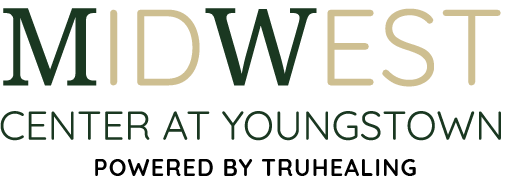The highly addictive nature of cocaine may leave you feeling like your life is rapidly spinning out of control. Between all of the devastating physical, social, and financial impacts of cocaine use, you may even feel that you are beyond help. When seeking a cocaine addiction treatment program in Ohio, Midwest Center at Youngstown is here to support you along your journey. Contact our team at 844.544.0502 to learn more about the next steps in enrolling in a cocaine rehab program and how we can help reclaim your health and well-being.
3 Common Signs of Cocaine Addiction
Due to its immediate and exhilarating effects, it is possible to form a dependence on cocaine after only a single use. The immediate high appears quickly, often within 30 minutes of dosing. Because of this, it is commonly combined with other drugs or alcohol. This may slightly temporarily stave off the appearance of adverse side effects.
The longer-term signs of cocaine addiction fall into three different categories:
1. Physiological Impacts
Although traditionally snorted through the nose, cocaine can also be absorbed through the gums, taken intravenously, or inhaled. When used, cocaine causes dopamine levels to rise and major bodily systems to speed up to an unnatural degree.
This can cause:
- Rapid heartbeat
- Racing pulse
- Damage to the nasal cavity, teeth, or other contact sites
- Loss of taste and smell
- Rapid weight loss
- Insatiable cravings for more cocaine
- Lack of libido
The body was not designed to experience these intense highs or lows. When combined with other substances such as benzodiazepines or alcohol, cocaine can quickly result in catastrophic health conditions. These might include a heart attack, respiratory arrest, entering a coma, seizures, stroke, or even death.
2. Psychological Impacts
This rapid rise and fall of energy are expressed through a manic-depressive cycle, characterized by a euphoric high and an equally intense, or even more intense, crash. At this point, cocaine users will quickly present withdrawal symptoms, which can take the form of panic attacks, anxiety, depression, irritability, paranoia, hallucinations, taking on increasingly dangerous risks, and even bouts of violent behavior.
3. Impacts on Your Personal Life
Cocaine was long identified as a “status drug” due to its high price tag and association with celebrity culture. Once an individual develops a reliance upon its effects, they must often resort to dangerous or even criminal behavior to guarantee a steady supply. It is often impossible to continue functioning at work or in school, which causes individuals who use cocaine to become entangled in a web of lies and deceptive behaviors with their friends and loved ones.
How Cocaine Addiction Treatment Works
To treat cocaine dependence, individuals must first undergo a medically-supervised detox program to restore normal physical and cognitive functioning. During this phase, depression, lethargy, muscular tremors, anhedonia (the inability to feel pleasure), and extremely high cravings are common. Depending on the individual’s medical history, previous substance abuse, and other factors, this stage may last from one to three weeks. However, it can be made considerably more comfortable and safer within a dedicated rehab program.
After this point, you might participate in various therapeutic treatments. These might include group therapy, individual therapy, nutritional counseling, and assistance in returning to school or the workplace. Aftercare programs can vary depending on how cocaine use has affected your life but will often include several ongoing supports to ensure the client can successfully re-enter their regular life.
Find Cocaine Addiction Treatment at Midwest Center at Youngstown
It is never too late to obtain help. At Midwest Center at Youngstown, we can guide you through the steps of cocaine rehab, continuing to modify treatment to meet your individual needs and goals. Call our team today at 844.544.0502 to learn about the next steps in the healing process and how we can support your journey towards permanent sobriety.

